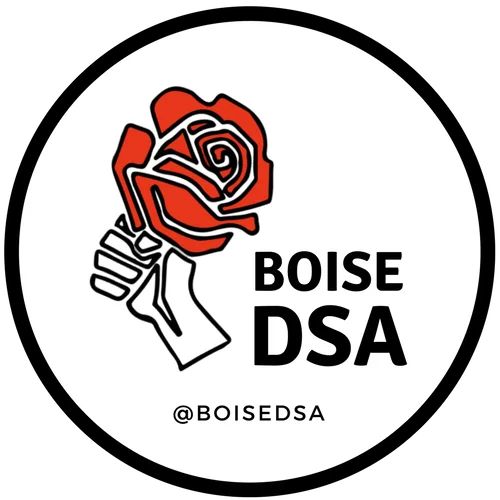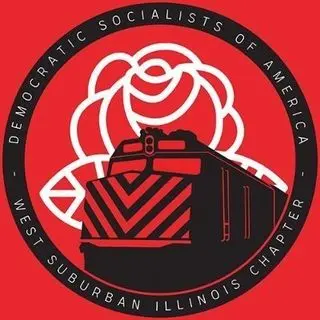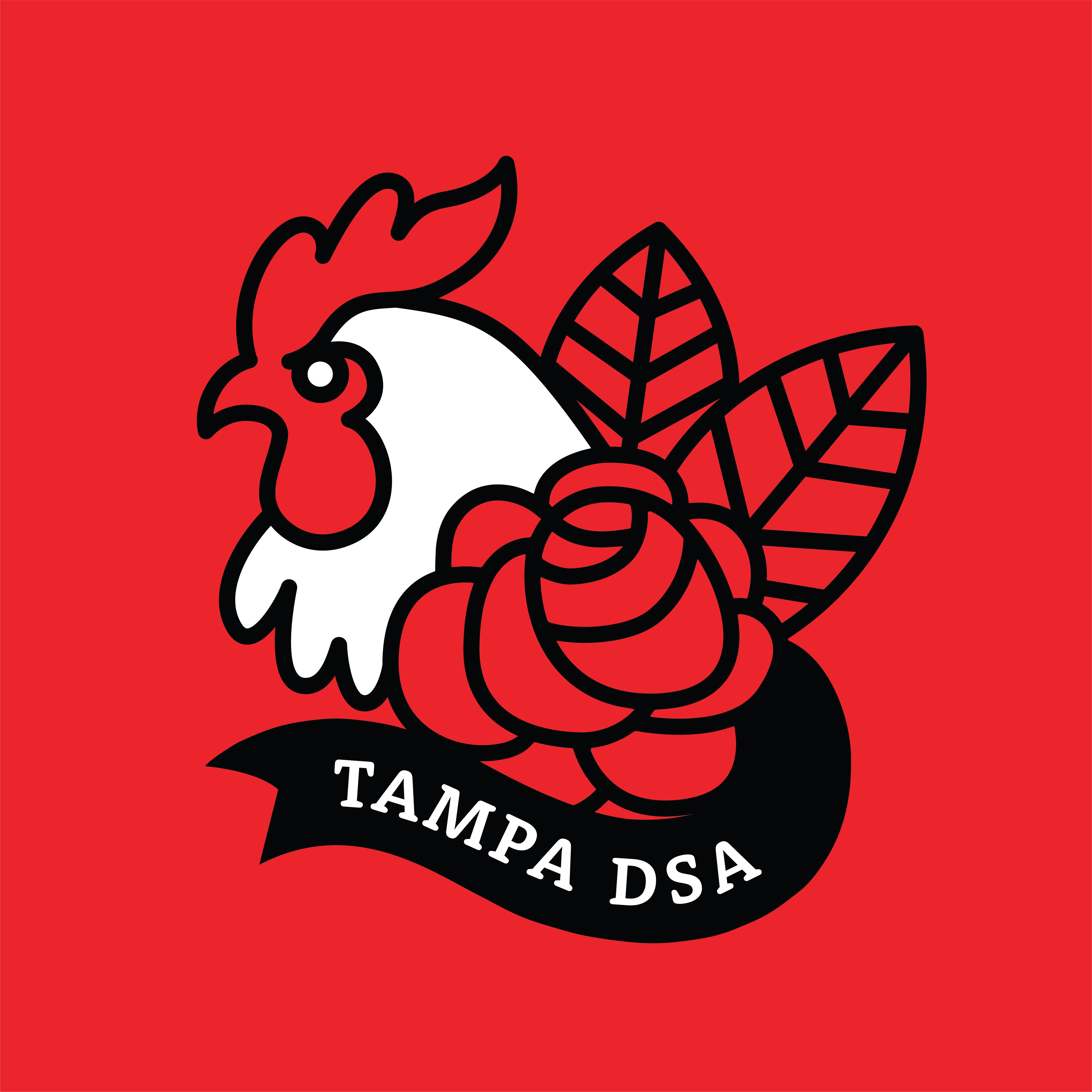

Defunding the Liberal Police
Last week, Burlington acting Chief of Police, Jon Murad, was allowed to address a 1,000-person Black Lives Matter rally in Burlington. Faced with pressure from hundreds of residents at public hearings demanding the City defund the police and remove 30% of cops from the street, Murad gave a skillful, liberal defense of expansive policing and the large budgets this requires. The affect of this was not exactly clear (he wasn’t booed off the stage), but the message did conflict with popular chants to abolish the police later on the march.
VTDigger published an instructive profile on Murad. You can read that here. It is an expose on how the Chief of Police, and policing itself, are tied in multiple ways in net of business, racism, and militarism.
As Alex Vitale demonstrates in The End of Policing, police are an armed apparatus of an economy based on profit and class division, needed to oppress, exploit, and subjugate, especially people of color. Modern policing grew from several strands of ruling class violence: colonial occupations, strike breaking, suppressing working class protest, and slave patrols. Capitalism requires this in order to protect huge class inequality and sustain the flow of profits. Policing is centrally about racism, militarism, and defending the power of capital over our labor, our lives, and our planet.
In Murad’s biography, many of the institutional connections underpinning modern policing are clear: he completed 2 degrees at a ruling class university (Harvard), worked as a security consultant for banks and other large corporations, identifies with the military and U.S. imperialism, demonstrates a long-term commitment to policing propaganda, and had a quickly advancing career with the NYPD under the infamous police commissioner William Bratton.
Bratton is the best known advocate of broken windows policing, an invasive and racialized form of social control that urban police departments around the world have adopted, several under Bratton’s personal direction. Bratton, a Democratic, also emphasizes the importance of public relations, spinning the most egregious practices and results from broken windows and stop-and-frisk risk to insulate the legitimacy of policing from justified criticism and attempts to defund.
Bratton was also a mentor of Burlington’s former Police Chief Brandon del Pozo. Del Pozo was forced out after a presiding over police killings and violent attacks on Black residents, plus police harassment of civil rights activists. During his tenure del Pozo claimed an unlimited appetite for more cops to do social good, embracing the liberal hope that police can be a progressive social force. This also goes along with racially diversifying policing, which both Murad and Bratton promote, but which research show has little to no effect on out-of-control police violence and killing.
As Vitale documents, the invasive “community” policing Murad did in New York housing projects is exactly what the anti-racist movement for police defunding, against mass incarceration, and for abolition points to as the problem.
The multiracial rebellion for Black lives and the thousands in Burlington who have rallied and testified and protested have successfully put defunding police and firing violent and abusive cops on the public agenda for next year's budget. But on the other hand, it's also the case that policing has support from the sectors of real estate, retail, banking and finance, military industrial complex, Democratic Party, Republican Party, major media and the highly motivated police and military associations.
Unfortunately, some groups that should be on our side are not. While several unions and union federations have sided with the movement for Black lives, the Vermont State Employees Association (VSEA) executive director, Steve Howard, has sided with policing and retaining cops in unions. Pro-police union bureaucrats, along with the economic and political rulers, all hope, not without some basis, to ride out the moment with delay, redirection, scare tactics, and cosmetic reforms. They will not willingly work to undermine the policing that helps maintain the existing system of racial injustice and class inequality.
A key question is how can we continue to escalate and strategically expand the brilliant and inspiring protest movement that has got us this far. The current level of protest and lobbying pressure on the Mayor and City Council has forced some recognition of the problem. But it may not be enough given the powerful forces arrayed against police defunding.


KRJ on Defunding the Police, Christian/Buddhist spirituality, and her NYC City Council Campaign

Authoritarian "Democracy" and the New York Democratic Primary
Support for Urooj Rahman: https://fundrazr.com/71fsC0?ref=sh_09Ftc6_ab_5z27OP7I9s75z27OP7I9s7
https://www.cunyclear.org/ Twitter: @CUNY_CLEAR
DSAForTheMany is @nycDSA's Multi-Candidate slate for state offices. The endorsed candidates are Jabari Brisport, Julia Salazar, Marcela Mitaynes, Phara Souffrant Forrest, & Zohran Mamdani.
For federal races NYC DSA has endorsed Alexandria Ocasio-Cortez and Samelys Lopez while Lower Hudson Valley DSA has endorsed Jamaal Bowman.
Polls stay open until 9pm. If you haven’t voted yet and feel safe heading to the polls, make sure your vote is counted. If you’re having issues at the polls or questions about voting please call 866-700-5927.


Statement regarding Eugene Mayoral Primary Endorsement
Since the conclusion of the Eugene Mayoral race, a candidate previously endorsed by Eugene DSA expressed “pride” in an attraction to adolescent children. We unequivocally condemn these comments, and urge any person with these interests not to seek office, but rather to seek help so that they may protect their fellow community members.
–Eugene DSA Coordinating Committee


Statement on Layleen Polanco and BC Board Member Darcel Clark

Darcel Clark should not be on the BC Board of Trustees. Her record as Bronx District Attorney is incredibly disturbing, from the egregious conduct of her office withholding exculpatory evidence while attempting to prosecute people like Pedro Hernandez, Otis Smith, and Walliris Velez to her role in the Kalief Browder case. Her recent decision not to press charges against anyone in connection with the death of Layleen Polanco reaffirms our position. Layleen Polanco was an Afro-Latina transgender woman who died in Rikers due to complications related to epilepsy in June of 2019. On June 5th of this year Clark announced she would not be pressing any charges against guards or staff at the prison. In her original release Clark included Layleen’s deadname. Just one week later NBC released surveillance video showing staff at the prison failing to attend to Polanco for an hour and a half, despite knocking on her door and seeing that she was unresponsive. Polanco was in solitary confinement despite the prison and prison doctors being aware of her epilepsy. When guards finally entered the cell they could be seen laughing. Polanco was in prison because she could not pay her $500 bail. Her case is sadly another example of the criminalization of transgender women and vulnerable communities through over policing and criminalization of poverty. The failure to care for Polanco while she was imprisoned and Clark’s decision not to press charges exemplify the disregard the criminal justice system has for transgender lives. YDS of BC once again calls for Clark to be removed from the BC board of trustees.
Sign the petition to remove Clark from the BC Board of Trustees here.


DSA Night School: How Can Educators Stop Unsafe Openings? Lessons from the Red State Revolt.
How Can Educators Stop Unsafe Openings? Lessons from the Red State Revolt
As President Trump pushes to open schools as if COVID-19 were under control, and Governor Little cuts Idaho’s education budget by $99 million (with more austerity certain to come), let’s look to West Virginia, Oklahoma and Arizona, where teachers found that striking was possibly their only tool to fight for the welfare of themselves, their students, and their communities.
Former teacher, labor organizer, journalist and DSA member Eric Blanc will join us to discuss how the collective action of Idaho educators could stop unsafe openings of schools.
RSVP at:

Of Pandemics and Academics: How the University of Michigan Robbed 30,000 Students
By Trenten Ingell and Joshua Sodicoff
You — and thirty thousand of your peers — are getting shafted by the University of Michigan, the leaders and best… go blue! Our fair-enough university boasted on the flyers you read as a prospective student, the banners that line campus, and many other methods of communication we receive about its immense power. It holds an endowment equivalent to the yearly expenditures of the government of Jordan, the largest stadium in the United States, and many of the top academic departments in the world. If it’s so great, and surely any representative of the University would agree, then why have they failed in supporting students beyond their most basic responsibility during the COVID-19 crisis? From the few weeks preceding spring break through now, the University has dealt with the needs of undergraduates strictly on the basis of necessity and not of humanity. In the process, they’ve failed to account for the nuances of these issues and have created new, unforeseen problems. From the very beginning of this crisis, these systemic failures have stood out to us. That is why we’re trying to organize students and other stakeholders in our community to speak out against our administration and the lack of accountability that’s led us to our current situation.
We want to acknowledge that we understand and accept that many of the actions that the University has taken during the current pandemic were necessary from a public health perspective. Do we miss our friends, having places to be, and Ann Arbor? Of course. But we’re realistic, and we know that an open campus during a global pandemic would only lead to disaster. That being said, at almost every point the University made one of these critical COVID-19 decisions, they botched it. Because of their inability to act, they have cost students their time, money, mental health, and for some, their ability to return home.
Do you remember how the University chose to cancel classes three days after the end of spring break? Other universities, also on break, gave students fair warning so that they didn’t have to engage in unnecessary, costly and potentially hazardous travel. But ours cancelled after we came back from break, some of us traveling across or even out of the country. It was only predictable that some of us would return to Ann Arbor with COVID-19. In addition to their delay in cancelling classes, the University gave no other information on how operations would proceed. Students were left in the dark about important decisions and left to react to them day-by-day. Surely, managing a crisis is difficult. But how did administrators not give credence to the impact of leaving a student body the size of a city in the dark? In travel costs alone, the University cost its student body hundreds of thousands dollars. This number is especially large when you consider that a strong majority of University of Michigan students are in-state.
Far more grievous was university housing’s actions to reduce the population density of on-campus living. What started with a series of emails pleading for students to move escalated to a notice that all students without a sufficient reason for staying on-campus would have to leave as early as March 17th. This was just three days before Governor Whitmer signed a statewide moratorium on evictions. The language in this email suggested students would lose keycard access the following morning if action was not taken. Only after the deadline set out in the email was any clarification given on the policy. Clarification that did nothing to mitigate fears that the University continued to hold the power to forcibly remove students from their rooms. The power structure in tenantship at the University implied that resistance was futile, and so the University conducted mass evictions.
Meanwhile, while universities across the country announced housing refund policies as part of a coherent COVID-19 response plan, the University remained silent on this issue until March 20th. Administration wondered why students remained in their prepaid housing when no guarantee of compensation for leaving was made. Housing’s decision to offer a measly $1,200 refund for half a semester of rent, utilities, and dining was a slap in the face to students who pay astronomical costs for these services. Room and board is, on average, $12,000 a year. We were told to leave campus right after spring break, halfway through the semester, equating to three thousand dollars in lost costs. Meanwhile, $1,200 is what we would have received if we were eligible for federal relief checks (another topic we could wax poetic on). Americans agree that this check wasn’t enough to make up for lost wages, and for University students who did not budget for the costs associated with providing for themselves, it goes much less far. Furthermore, upon cursory research, we found that the University’s disruption of services clause in the Community Living at Michigan document calls for a proportional refund in the event that Housing is unable to fulfill its obligations, like providing food or rent. In every sense, residents of university housing were shortchanged, and the continued lack of proportional reimbursement remains a gross violation of the University’s own policy.
The University’s best claim to an adequate response — its rapid transition to online coursework — also failed large swaths of students. Yes, some professors developed a strategy for continuing to provide coursework. Between us, we had great-to-fair experiences with the transition online but this is not the overwhelming response. Some courses that could have moved lectures and discussions online with enough thought simply reduced their requirements to short weekly assignments. Labs and other hands-on courses lost most, if not all, of their value. There was never any sign that departments were monitoring the continuity of coursework. When professors knew no one was watching, many chose to do the bare minimum. But still, with access to our course evaluations and Canvas pages, the University will pretend it did enough because we have the credits from this semester on our transcript. We know that this accomplishment is incomparable to the same of any other semester. When we come back, students will pay for the gap between expectations of their online learning experience and the reality of severely diminished outcomes from the change in environment and learning style. Whether this includes students being unprepared for further coursework from less attentive prerequisites or students abandoning tracts of coursework entirely from a department’s response to online classes, we will figure out soon enough
Of course, as we navigate through the pandemic, we will share our personal journey to fight against the University. From the very beginning of the crisis, when the University refused to publicly announce if a proportional refund would be offered as it pressured students to leave university housing, the both of us thought it was important to rally student voices against the failures of the administration. We started with a petition to request the University follow the stated policy of prorating services not rendered with respect to housing and dining — a fight that has since evolved into collaboration on research and representation for a class action lawsuit against the University. During this endeavor, we learned more about the scale and variety of problems that our peers were facing, from unresponsiveness of departments beyond housing to dissatisfaction with online coursework. We felt uncomfortable stopping our efforts at an issue that was close to us as former university housing residents when we saw that all of our peers were, in some way or another, receiving unjust treatment.
In the process of developing our requested response, we attempted to reach out to diverse voices in our community. The first step of this was the creation, and subsequent distribution, of a Google Form with questions about student priorities. It also provided space to describe what elements of crisis response students found most important. We saw that students overwhelmingly supported a proportional refund for aspects of the winter term, a reduction in tuition for the spring, summer, and fall terms, and greater transparency in decision-making. With data and additional suggestions from this form, we reached out to a GroupMe we had made for students interested in supporting a fuller response from the University for help in writing a document detailing our rationale and our finalized list of demands. We also reached out to the Graduate Employees’ Organization (GEO), a union representing graduate student instructors and student staff assistants at the University. Recently, GEO successfully negotiated a new contract despite the pandemic. We sought their input on issues of strategy and for feedback on our draft demands. Ultimately, we settled on the following:
- A 50% discount for tuition and fees for the Spring, Spring/Summer, and Summer 2020 terms, a 25% tuition discount for the Fall 2020 terms, with an additional 25% discount in the event that classes continue in an online format.
- A pro-rata refund, retroactively effective March 12th for room and board, tuition, and fees for the Winter 2020 term.
- Subsidies for rent payments for students living off campus, and university assistance in terminating leases in the event that classes continue in an online format in the Fall.
- Additional academic resources, including additional tutoring and make-ups for lab courses, meant to compensate for the decrease in quality of the second half of the Winter 2020 term.
- A 50% reduction in expenditures toward executive officers and service units as well as a half reduction in utility costs passed on to students as a means of partially offsetting these demands.
Instead of helping students negotiate with landlords, the University ardently pressured students to leave. Instead of providing further financial assistance to its students during a turbulent economic period, the University and its administration ranted about its own supposed financial struggles in an attempt to explain why it was unable to address even the most basic of student concerns. The dust has settled now, and we want to address the glaring flaws in the University of Michigan’s response to COVID-19 through these demands.
The primary criticism of these demands has been the associated numbers. Originally, we tried to conduct research into university financials to develop a full picture of where tuition goes and what costs might be lower under the current circumstances. We quickly found a bit of opacity with cash flows beyond the department level, making it difficult to back up any decisions we made. Instead, we decided to err on the side of requesting more than we expected to receive. In the event that we negotiate with the University, compromise is to be expected. So why start with a weak position?
Our current issues revolve now around tackling the repressive set of policies and bureaucracy that the current university administration has established. The existing structure of our university does not allow the students to have any voice in discretionary spending or crisis-related decisions, and because of that the University has been unable to understand or react to student needs as they come. If the University wants to exert its institutional authority over us as students, so be it. But this should at least be done with some effort to buttress the social safety net of the student body at large. They have these investments and liquid assets to use. They are, as an institution of learning, tasked with promoting a quality education and charming college atmosphere which we have all likely come to appreciate in our academic careers. Not only has the University failed to provide the basic service of a safe and secure environment for its students, it has robbed many of those students the financial safety net that has yet to be provided by any state or federal institution.
We have to be clear about what the consequences of a poor long-term response from the University may be. Already, the University is counting on a net outflow of students due to an unwillingness to pay full price for an inferior semester. In response, they admitted 500 more freshmen than originally intended. Students will transfer out, take gap years, or in some cases end their college careers entirely. As the economic outcome of the pandemic becomes more clear, we think that a higher proportion of students than originally accounted for will take one of these paths. Students already taking off and unable to pay tuition are unlikely to return. For the University, this will mean lower revenue far beyond just the Fall semester. Some students will likely attempt to bridge this difference with loans, a risky choice to make in the midst of a growing national college debt crisis and in one of the worst economies of the last hundred years. For many, this choice will surmount to indentured servitude to lenders for years. Because students will return, whenever that may be, with a shallow understanding of content they were supposed to have learned this semester, they are more likely to perform below standards that have yet to be addressed by anyone at the University. This is a perfect storm of negative factors, leading to a student body depressed in all senses of the word at the most crucial time in their development. We will have the burden of a crisis completely outside of our control on our backs for the rest of our lives. From an organizational standpoint, this is also very bad for a university that prides itself on its alumni network and extensively solicits donations from its graduates. If it means anything to you, reader, we promise to complain about the response to anyone who asks about our thoughts on the University after we graduate…
We have been led to believe as students that the University has an abundance of resources available to students on and off campus. The list goes on of the great facilities, departments, and amenities of living. It leaves a bitter and unsavory taste in our mouths as we are told by this same university that it is now unable to provide the necessary financial support to its students through this crisis, and that it has somehow lost all ability to forgive tuition and housing payments, or spare even a single cent on lowering tuition for the upcoming term. They have led us to believe that the University will hemorrhage from the effects of COVID-19 and they will need to make cuts in how much they are able to provide to students during this time. This is one of the greatest fabrications the University has engineered. We understand that it is not as simple as breaking open the piggy bank of a multibillion dollar endowment; it is a reallocation of assets and a change in policy that accommodates the circumstances of the current pandemic. What would you estimate the University’s current assets sum to, in total? I guarantee you, you will underestimate the bloated behemoth that is the account book of any institution of higher education. As we begin to imagine this staggering amount of accumulated assets, we must consider what is necessary for an institution of learning to guarantee for its students.
The choices administrators have made so far have had severe material consequences for their students. And the inaction of our University has set a precedent for institutions of learning to pass on their financial liabilities to their student body. As we aim to unionize and negotiate a fair deal for students, we ask you, the reader, to consider for yourself the consequences of a silent and apathetic student body during this crisis.
We have reached out to dozens of orgs other than YDSA at the University of Michigan, our sole organizational sponsor, and we have yet to receive a single response. We assume that org leadership naturally doesn’t want to invoke the wrath of the University on their funding and relationships to the wider community. But because we now have a system where students are being seriously harmed, we must act. If we as a student body do not voice our dissent of the current university policy, we will be robbed once again and will have no one but ourselves to blame. Ignoring this opportunity to engage with the system endangers both your own and your fellow classmates’ financial security. You have nothing but the time and ability to spread this discourse of a fair deal for students, but we perhaps naively have expected this out of the student body, the supposed leaders and best that Michigan has to offer.
We implore you to consider once again what your interests are as a student. As someone who is currently paying for housing and tuition, ask yourself some questions. Do I think the Board of Regents has my best interest at heart? How can I expect a fair deal from the University’s administration who continue to act in the self-interest of the University’s capital interests, and have been nothing but antagonistic to the housing and academic needs of its students? If I can’t expect any form of refund or financial aid during this time, what is it that I can do to help myself and my fellow Wolverines?
Well, we are here to answer that last question! As representatives of Students for a Fair and Transparent COVID-19 Response, we are here to demand the University answers the needs of its students before the Board of Regents make budgetary decisions for this upcoming Fall term. It is imperative that we are proactive during this crisis, and that we can unify as a student body to pressure the University to listen. We have many avenues through which we intend to organize, such as tuition strikes, threats of mass-disenrollment, and media outreach. Feel free to ask us questions or give us feedback at either of our emails, ingellt@umich.edu and sodicoff@umich.edu. If you have a problem that you have faced because of the University’s response to COVID-19, we want to know and we want to help! This struggle is ours to solve in concert, to understand our rights as students during this time, and to set precedent for the University to respond fairly to our needs during times of crisis.
Of Pandemics and Academics: How the University of Michigan Robbed 30,000 Students was originally published in The Michigan Specter on Medium, where people are continuing the conversation by highlighting and responding to this story.

Ecosystem of an Uprising
You’re listening to Revolution Per Minute on listener sponsored WBAI in NYC broadcasting at 99.5 FM and streaming on your favorite podcast app. To connect with us after the show you can email us at revolutionsnyc@gmail.com. You can find us on our website revolutionsperminute.simplecast.com or on twitter @nycRPM


Nominations Are Open!
Nominations are open for two leadership roles: one is a Steering Committee position, the Internal Organizer, and the other is for a second Harassment and Grievance Officer. Please go to this link if you want to nominate yourself for one of these positions. To be eligible, you need to be a member of DSA and up-to-date with your dues payment and reside within West Suburban IL DSA territory. If you have a question about your membership status, please contact the Membership Organizer, Lisa, at mbr.org@wsildsa.org.
Voting for these positions will take place at the WSDSA annual convention, which is scheduled for Sunday, July 12 at 11 am via Zoom. Nominations close on Saturday, June 27 at 5 pm and the membership will be contacted via email on Sunday, June 28 with the convention agenda. This email will include the nominees and their statements so folks can familiarize themselves with them before voting takes place.
If you have any questions about the nomination process, voting, or anything else related to the WSDSA convention, you are welcome to contact the Steering Committee at info@wsildsa.org.


Demands regarding policing in Tampa:
June 2020
We, the members of Tampa Democratic Socialists of America (DSA), have developed a list of demands to address the violent policing system that fails to efficiently serve and protect members of the Tampa Bay community—particularly our communities of color. The urgency with which we present these demands is driven by the brutal murder of George Floyd by the Minneapolis Police Department on May 25, 2020, the most recent in a long line of black lives lost to police brutality. Black Lives Matter.
Tampa DSA demands justice for all acts of police violence that have and continue to threaten the health, safety, and livelihood of our communities. As a democratic socialist organization that is committed to fighting all forms of systemic oppression, our list of demands is presented within an intersectional, class-conscious framework that seeks to ultimately dismantle an inherently oppressive policing system. This vision can be achieved through a series of justice-oriented actions that include demanding accountability for racist police brutality and repurposing our bloated police budget to better serve the interests of our communities.
We demand that the City of Tampa:
- Cut 15% of the Tampa Police Department’s budget (which currently accounts for over 38% of our city’s general fund and 18.6% of the total city budget) and redirect this money towards public transportation, low-income housing, education, and community public health centers by 2022.
- Decouple access to healthcare from policing by building separate institutions for clinical dispatches. Increase the number of 24/7 Adult and Child Mobile Crisis Teams responding to mental health crises, ensuring that each team includes both a Certified Peer Support Specialist and a licensed clinician. Dispatch only EMTs to calls of drug overdoses. Dispatch licensed clinicians with law enforcement to all calls related to domestic violence.
- Ban the use of pepper spray, tear gas, rubber bullets, bean bag bullets, LRADs, and armored vehicles by TPD against public demonstrators.
- Ban the use of facial recognition software, such as Clearview AI, that infringe upon privacy rights.
- Cease using quantity of arrests as a performance measure to assess officers of the TPD and instead focus on history of misconduct.
- Keep the curfew related to public demonstrations lifted indefinitely.
- Remove requirements for permits to exercise first amendment rights.
- Adopt a policy to reduce asset forfeiture (which currently accounts for approximately one million dollars of TPD’s budget) including a provision prohibiting the TPD or its employees from benefiting from seized assets. For assetsnthat cannot be returned to the arrested party, the assets should be liquidated and the resultant funds should be diverted to public education and/or mental health services.
- Dissolve Tampa PD and Hillsborough County School Board’s School Resource Officer (SRO) Program and to completely replace SROs with licensed clinical social workers, psychologists, and nurses in public schools by 2021.
- Ban the use of no-knock warrants and choke holds.
- Decriminalize drug possession and sex work.
We demand that Mayor Jane Castor:
- Call on Governor DeSantis to immediately end the deployment of the National Guard within the City of Tampa.
- Fire Police Chief Dugan for the Tampa Police Department’s violent use of force against peaceful protesters.
We demand the Tampa Police Department:
- Issue summons or citations in lieu of utilizing custodial arrests for nonviolent misdemeanors.
- Investigate prevalence of white supremacist groups and individuals within TPD.
- Adopt policy requiring full transparency in officer conduct and training history.
- Disarm all patrol officers by 2022.
Regarding the City of Tampa’s contract with the Tampa Police Benevolent Association, we demand:
- The City of Tampa renegotiate its contract with TPBA once it expires after 2022 to remedy provisions that currently act as impediments to accountability for officers who use force in violation of the law or policy.
- Amendments to the existing contract should:
- Mandate yearly fitness for duty evaluations.
- Make personnel records of TPD officers accessible to the public.
- Keep complaints on file, even if the allegations are not deemed to be substantiated.
- Keep letters of counseling in personnel files permanently.
We demand that State Attorney Andrew Warren:
- Institute an office-wide policy that assistant state attorneys are not to seek cash bail.
- Institute an office-wide policy that assistant state attorneys should advocate that defendants be released on their own recognizance unless the defendant is a danger to the community or a flight risk.
- Immediately drop all existing charges for nonviolent misdemeanor cases.
- Immediately stop the direct filing of juvenile cases into the adult criminal system, regardless of the severity of the crime.
We demand that the Chief Justice of the 13th Judicial Circuit and the Clerk of Court:
- Continue the moratorium on evictions and foreclosures for the duration of the pandemic.
The post Demands regarding policing in Tampa: appeared first on Tampa DSA.